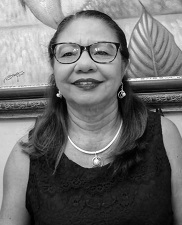
Researcher Profile
Olivia Morán Núñez
Associate Professor
School of Psychology
Universidad de Panamá

When I was 15 years old, my school administration selected me with other students to participate in a national literacy program. I accepted because teaching was something I always did with my classmates. We were trained to use Paulo Freire’s method. I was assigned to a rural area; my youngest student was 35 years old and my oldest was 85. It was a very important experience in my life, because it allowed me to understand the value of the word, oral or written. This contributed a lot to what was already my favorite pastime: reading.
I chose a career in psychology and graduated as a psychologist from the National Autonomous University of Mexico. The deeply humanistic sense of this institution strengthened my commitment to the underprivileged, so that they would have access to quality education. The emphasis on research was also part of the hallmark of my alma mater. This, together with my training as a bachelor of science, has spurred my interest in seeking and finding answers to my doubts and concerns.
I began my working life as a psychologist at the University of Panama. One of my main tasks was the monitoring and academic support of students with performance difficulties. That is how I learned that, at the root of such problems, there are often various limitations of reading competence. Therefore, when I learned about the Master’s program in Reading offered by the Complutense University of Madrid through the Spanish Agency for International Cooperation, I did not hesitate to participate in the scholarship competition. I was selected and so I arrived in Madrid. The director of the master’s program was Dr. Aníbal Puente Ferreras, who was also my teacher in several courses and directed my final paper.
From my position as a psychologist in a university and later as a teacher in the Faculty of Psychology, I have been able to combine my interest as an inveterate reader -I read everything- with my professional interest in the cognitive processes that are set in motion when we read and in the world we can enter when we open a book… and the world that is denied to us when we do not read. Thus, I did doctoral studies in educational research and for some years now I have been working on the subject of reading and this has allowed me to share with other people who also have concerns and interests on this subject. Currently, I participate in a reading group through the web, with colleagues from Mexico, Panama, Costa Rica, Spain, among others. Reading, always reading, provides space and time for solace and recreation in these difficult times due to the limitations imposed by the COVID-19 pandemic.
Now, participating with this group in a multicultural research work on metacognition is a challenge, a commitment and, above all, an excellent opportunity for personal and professional growth due to the experiences shared by all the members of the team.
Olivia Morán Núñez
When I was 15 years old, my school administration selected me with other students to participate in a national literacy program. I accepted because teaching was something I always did with my classmates. We were trained to use Paulo Freire’s method.
Walter Arias Gallegos
I am Peruvian and father of a family with three children. I obtained my psychologist degree from the National University of San Agustín de Arequipa (UNSA – Peru). I have a Master’s Degree in Educational Sciences with a mention in Cognitive Psychopedagogy from UNPRG and I am a Doctor of Psychology from UNSA.
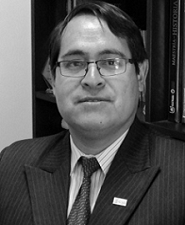
Researcher Profile
Walter L. Arias Gallegos
Associate Professor
Universidad Católica San Pablo de Perú

. I have a second specialty in Guidance and counseling and family psychotherapy from UNSA (with professors from the Complutense University of Madrid who trained me in systemic family therapy) and another second specialty in Catholic University Teaching from the San Pablo Catholic University (UCSP). I have a diploma in Strategic Human Resources Management, Management of Integrated Management Systems and Neurosciences applied to education.
My work experience is oriented as an educational psychologist in various educational institutions of regular basic education and higher education in the city of Arequipa, as a clinical psychologist I have experience in consulting and psychological care in public and private health centers in the southern region of Peru. As an occupational psychologist, I am part of the staff of professionals at the Center for Occupational Integral Medicine in the specialty of occupational mental health. As an organizational psychologist, I have carried out recruitment and personal selection processes in private companies and I provide training in various companies in Peru on issues of job satisfaction, customer service, occupational mental health, conflict resolution in the company, etc.
I am currently a full-time assistant professor in the Psychology Department of the San Pablo Catholic University in Arequipa (Peru) and I am a Concytec-certified research teacher in the Carlos Monge II category. As a university professor I have worked in undergraduate and postgraduate courses at various universities in Peru and abroad. I have published eight books: Psychologists, Men of Science (2005), Fundamentals of Learning (2008), Chronic Stress at Work (2012), Burnout Syndrome and Coping (2015), Correspondence between Walter Blumenfeld and Edwin Boring (2015), the latter co-authored with Tomás Caycho and Miguel Barboza; The phrenological studies of Juan Gualberto Deán Valdivia in the Arequipa of the 19th century (2018), Psychology and family, five approaches to the family and its psychological implications (2020), and psychological research in Latin America (2023) co-edited with Miguel Gallegos. I am preparing other books on psychometrics, psychosocial risks at work, the history of Peruvian psychology and positive psychology at work.
I have been director-editor of various psychological magazines such as the Arequipa Psychology Journal, the UCSP Research Journal, the Family Perspective journal, and I am currently director of the UCSP Psychology Journal and the Peruvian Journal of the History of Psychology. I am also a member of the Editorial Committee of several national and international journals, and in many others I have fulfilled the role of referee or academic peer for the review of research articles.
I have published almost 300 empirical and theoretical investigations in indexed journals in Peru and abroad on psychology, education and work. In Google Scholar I am listed as one of the 10 Peruvian psychologists with the greatest impact with an h index above 80, my h index in Scopus is 6. My lines of research are: history of psychology (psychology in Arequipa, Latin American psychology and Soviet psychology), educational psychology (learning styles, metacognition, ICTs, teacher stress, academic performance, etc.), occupational psychology and job safety (psychosocial risk at work, burnout syndrome, coping, organizational climate, job satisfaction), neuropsychology (neuropsychology of learning, prefrontal syndrome, laterality and hemispheric dominance), positive psychology (happiness, optimism, hope, resilience, gratitude, forgiveness, love, etc.) and family psychology (family integration, parental stress, family-work conflict, family functioning, etc.).
I am a member of the Peruvian Educational Research Society (SIEP), the Peruvian Society of Emergency and Disaster Psychology, the Ibero-American Network of Researchers in the History of Psychology (RIPeHP), the Ibero-American Network of Work and Organizational Psychology (RIPOT), the Inter-American Society of Psychology (SIP), the Peruvian Society of History, the Peruvian Association of History of science, the International Association of Applied Psychology (IAAP), and international affiliate of the American Psychological Association (APA). I am also a founding partner and past-president of the Peruvian Society for the History of Psychology.
ORCID iD: https://orcid.org/0000-0002-
Research Gate: https://www.researchgate.net/
Google Scholar: https://scholar.google.es/
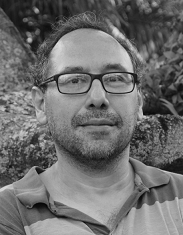
Researcher Profile
Mauricio Molina Delgado
Full Professor

My academic career has been marked by the attempt to combine diverse interests. This has led me to break boundaries between disciplines and approaches, including barriers between fields traditionally considered scientific and those that are usually framed as humanistic.
Thus, in 1985 I enrolled in Philosophy and Statistics at the University of Costa Rica (UCR). In 1989 I obtained a bachelor’s degree in Statistics with a mention in Computer Science and began teaching at the Department of Statistics at UCR. Although my dissertation corresponded to a topic of epidemiological data (Survival Analysis with competing risks), my main interest was psychometrics and mathematical modeling of psychological phenomena. This year I began my Master’s in Cognitive Science at UCR and as part of my studies, I did a one-year internship at the University of Colorado at Boulder, where I took courses in Psychology and Linguistics.
After finishing my master’s degree, I returned as a researcher at the IIP (Institute of Psychological Research) with different projects in the field of cognition and human abilities. Later, I received a scholarship from the Greek government and got my PH.D. at the Aristotle University of Thessaloniki. Back at UCR, I continued as a researcher at the IIP and collaborated with other units such as the Neuroscience Research Center, developing projects on computational models of animal behavior. I have also conducted research in metacognition, including computational models of metacognitive judgments.
Since 2018 I have assumed the direction of the Philosophy degree at UCR and have continued to work on different topics in Philosophy of Mind and Philosophy of Psychology, including the relationship between metacognition, modularity and consciousness.
In addition to these fields, for several years I have dedicated myself to literature and writing. I had published my work in different countries as Costa Rica, México, Spain, Egypt, etc. Furthermore, I have received different literary awards including the Costa Rican National Literature Award in 2016. As was said above, I have tried to link my academic and artistic interests, thus, I have some publications about interpretations of Science Fiction TV-series from a perspective in Philosophy of Mind, the effect of music training in Executive functions, as well as the cognitive elements in metaphor.
Recent publications:
- Molina-Delgado, M. y Salas-Murillo, B. (2021). Qualia inside the mirror. En German A. Duarte y Justin M. Battin (2021). Reading Black Mirror. Bielefeld: Transcript. pp. 103-117.
- Smith-Castro, V., Gallardo-Allen, E., Molina-Delgado, M. (2021). My Home, My Rules”: Costa Rican attitudes towards immigrants and immigration. En V. Smith-Castro, D. Sirlopú A Eller y H. Ϛakal. Intrarregional migration in Latin America. Psychological Perspectives on Acculturation and Intergroup Relations. American Psychological Association (APA).
- Hernández, M., Molina-Delgado, M, Smith-Castro, V. y Rodríguez-Villagra, O.A. (2020). Funciones ejecutivas entre músicos y no músicos: un metaanálisis. Interdisciplinaria, 37, 38-XX.
- Morales, J.A y Molina-Delgado, M. (2017). The discovery/justification context dichotomy within formal and computational models of scientific theories: a weakening of the distinction based on the perspective of non-monotonic logics. Journal of Applied Non-Classical Logics, 26, 315-335.
- Molina, M. (2016). Treinta y seis daguerrotipos de Diotima desnuda. Sevilla, España: Isla de Siltolá.
- Molina-Delgado, M. Padilla-Mora, M. & Fornaguera, J. (2013). Simulation of behavioral profiles in the plus-maze: a classification and regression tree aproach. BioSystems, 114, 69-77.
- Molina Delgado, M. & Smith-Castro, V. (2011). Matrimonio gay Actitudes hacia el matrimonio y la unión civil gay en Costa Rica: religiosidad, homofobia, autoritarismo o desconocimiento. Interamerican journal of psychology, 45, 133-143.
Links
Google Scholar: https://scholar.google.es/citations?hl=es&pli=1&user=GMe1r58AAAAJ
ORCID: https://orcid.org/0000-0003-4335-3095
Mauricio Molina Delgado
My academic career has been marked by the attempt to combine diverse interests. This has led me to break boundaries between disciplines and approaches, including barriers between fields traditionally considered scientific and those that are usually framed as humanistic.
Claudia García de la Cadena
My immersion into psychology was not accidental; I had grown up with parents who were very committed to formal and informal education. My father used to tell us that the most valuable thing that human being has is their intelligence, their thinking skills, and their desire to improve through learning. I remember that every moment was an opportunity to marvel at a painting, a landscape, a type of tree, or a sunrise, discovering always different things.
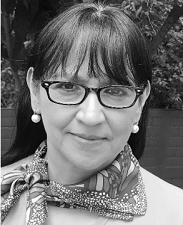
Researcher Profile
Claudia García de la Cadena
Director and Teacher
Postgraduate and Master’s Degree in Neuropsychology
Universidad del Valle de Guatemala
My immersion into psychology was not accidental; I had grown up with parents who were very committed to formal and informal education. My father used to tell us that the most valuable thing that human being has is their intelligence, their thinking skills, and their desire to improve through learning. I remember that every moment was an opportunity to marvel at a painting, a landscape, a type of tree, or a sunrise, discovering always different things.
I’m the second daughter of five siblings. When I was little, I had pneumonia and my mother always overprotected me. I can even mention that when my father saw me learning how to swim, he took me out of class because I used to cry the whole time. I remember that he told me: “I’m not going to allow you to hate and fear water”. Eventually, I stopped attending swimming lessons when I was little and then, with the help of my father and my determination, I learned how to swim. Nowadays, it’s an activity that I really enjoy.
Through the years, I developed a great interest in understanding how the brain worked; this was one of the reasons why I decided to become a psychologist. But my main goal was to become a Neuropsychologist, so I enrolled in the Faculty of Psychology of the National Autonomous University of Mexico (UNAM). From the first day, I began conducting investigations and research attending a Sleep Laboratory at the National Institute of Neurology and Neurosurgery (MVS). With time, I got accepted at the UNAM Neuropsychology Laboratory directed by Dr. Feggy Ostrosky where fortunately I began to learn what I liked the most. I completed my bachelor’s degree with topics related to Parkinson’s Disease and Neuropsychological and Psychophysiological evaluations. Then I applied to the master’s degree program in Psychobiology, which included Neuropsychology as a study area. I was able to conduct an investigation on normal and pathological aging. During this time, I also entered the National Institute of Neurology and Neurosurgery to establish the Laboratory of Experimental Psychology where I worked with Dr. Elisa Alonso in the department of genetics and in the area of Psychoeducation; creating support groups for different diseases, which even with my absence and with the perseverance of my colleagues, continue to function to provide services to patients with neurological diseases and their families.
In 1999 I decided for a personal life project to form a family, and change my residence in Guatemala City, my two daughters were born, the treasure that I appreciate the most in this world Paula and Diana. Once incorporated to be able to practice in the country and during this time, I started working at the Universidad del Valle de Guatemala, my husband Mynor, when I arrived in Guatemala, told me “the only place where you can do research in this country is in the police and at the University of the Valley of Guatemala UVG. I have been working at the UVG since May 2002, from the beginning I came to the university to form a research unit invited by the then director, Dr. María del Pilar Grazioso, but I did multiple tasks, I was coordinator of Licenciatura program in Psychology, I supported administrative tasks in the Master’s Degree in Psychological Counseling and Mental Health, then I was director of the Department of Psychology and teacher. Finally in 2015 I started as director together with Dr. Tedd Judd of the Master’s in Clinical Neuropsychology and now we direct the Postgraduate and Master’s in Applied Neuropsychology and the postgraduate in Psychological and Health Interventions.
In 1999, I decided to form a family, as a personal life project; changing my residence to Guatemala City, where my two daughters were born. Paula and Diana are who I most appreciate and value in the world. While we got adapted to the country and I was able to work as a Neuropsychologist, I began working at Universidad del Valle de Guatemala (UVG). My husband Mynor had told me when we arrived in Guatemala, that the only place where I could do research in the country was in the police and at UVG. So, I have been working at UVG since May 2002. Since then, I was invited to create a research unit by the director Dr. María del Pilar Grazioso, in those years. In spite of that responsibility, I performed multiple tasks such as being a teacher, the coordinator of the bachelor’s degree Program in Psychology, supporting administrative processes in the master’s degree in Psychological Counseling and Mental Health, and becoming the director of the Department of Psychology. In 2015 I became the director, together with Dr. Tedd Judd, of the master’s degree in Clinical Neuropsychology. Nowadays, we direct the postgraduate programs in Applied Neuropsychology and in Psychological and Health Interventions.
Thanks to the institutional support of UVG, my Dean Dr. Cristina Zilbermann de Luján, and my colleagues in the department, as well as my husband Dr. Mynor Villeda, I was able to complete my dream and obtain a Ph.D. in Cognitive Neuroscience at the University of the Laguna, Spain under the direction of Dr. Juan E. Jiménez.
Since I joined the UVG, I have carried out teaching and research tasks in different disciplines and groups, such as colleagues in Spain, the United States, Mexico, and Latin America. I truly believe that unity and teamwork have outcomes of strength and that the development of psychology and neuropsychology in Guatemala will benefit from the joint work of all of us who are part of the guild..
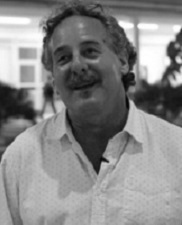
Researcher Profile
Dr. Sebastian Urquijo
Faculty of Psychology – Universidad Nacional de Mar del Plata, Argentina
Institute of Basic, Applied, and Technological Psychology – IPSIBAT – UNMDP-CONICET
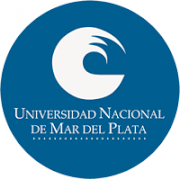
Since I was a child, I wanted to become a researcher. I didn’t know exactly which area or subject, I was just passionate about the idea of conducting research. I studied three different majors before pursuing Psychology, until I discovered that I wanted to learn more about human behavior.
I studied Psychology at the National University of Mar del Plata, where I currently work. Upon graduation, I was offered a job at a school, and I began specializing in learning processes. Three years later, I pursued a Master’s and a Doctorate in Education, focusing on the field of Educational Psychology at the State University of Campinas, UNICAMP, Brazil.
I returned to my Faculty, which was reopened after being closed during the military dictatorship in Argentina, when research was in its infancy. I entered the Research Career of the National Council for Scientific and Technological Research – CONICET, and I dedicated myself to the academic path, working in various areas of human behavior, always related to learning and the functioning of cognitive processes. I have worked on psychological characteristics linked to adolescent learning, the relationships between literacy learning and the development of executive functions, the psychological characteristics and academic performance of university students, and I am currently focused on researching the effects of the pandemic and social isolation on emotions, especially in older adults.
Currently, I am the Director of the Institute where I work and a Professor in the courses “Learning Theories” and “Cognitive Psychology,” both in the third year of the Psychology degree program at the National University of Mar del Plata. I am a member of the Academic Committee of the Doctorate program at my Faculty, of which I was the inaugural Director. I have also been working in private practice for 30 years, employing Cognitive Behavioral Therapies, which allows me to have real contact with people’s experiences and emotions. I have conducted psychological evaluations in the criminal justice field, assessed projects for undergraduate and postgraduate university programs, and engaged in community interventions.
I greatly enjoy what I do and look forward to going to work every morning. Sometimes, I become overwhelmed with tasks and struggle to accomplish everything I’d like to do. I am truly grateful for the opportunity to be part of this great team!
Google Scholar: https://scholar.google.com/citations?hl=enUS&user=IMGs3c4AAAAJ
Researchgate: https://www.researchgate.net/profile/Sebastian-Urquijo
Sebastian Urquijo
Since I was a child, I wanted to become a researcher. I didn’t know exactly which area or subject, I was just passionate about the idea of conducting research. I studied three different majors before pursuing Psychology, until I discovered that I wanted to learn more about human behavior.
